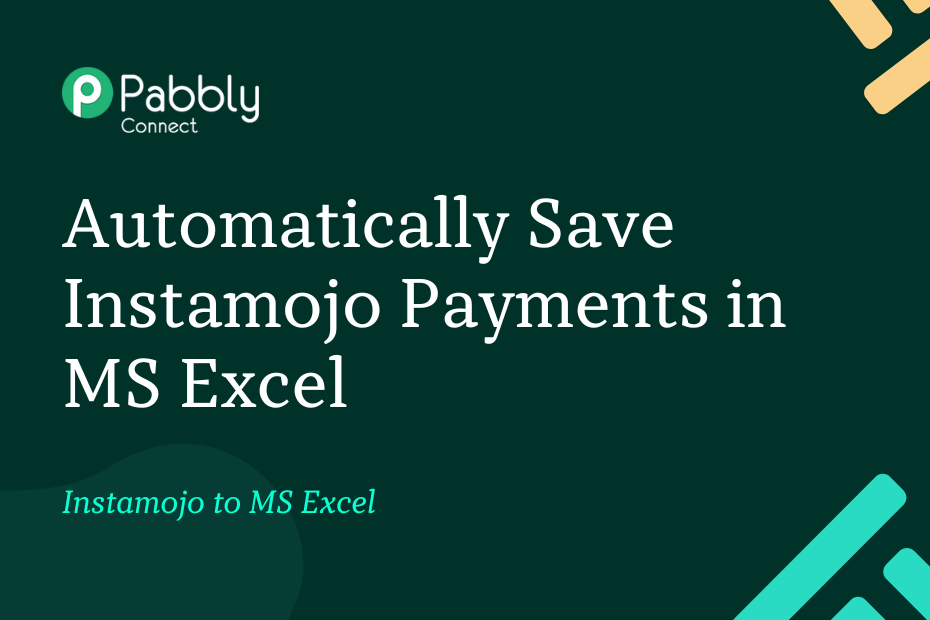Let us explore how you can integrate Instamojo with MS Excel and automatically save user details in MS Excel upon receiving payment on Instamojo.
This automation requires a one-time setup, for which we will use Pabbly Connect.
We will link Instamojo with Pabbly Connect to check for a new sale or successful payment, capture full customer details, link Pabbly Connect with MS Excel, and save the payment details in an MS Excel sheet.
Steps to Automatically Save Successful Instamojo Payments in Microsoft Excel
1. Sign In / Sign Up to Pabbly Connect and Create a Workflow
2. Establish a connection between Instamojo and Pabbly Connect
3. Setup Instamojo as the Action App to Get Full Details
4. Setup Microsoft Excel as the Action App to Save Payment Details
Step 1:- Sign In / Sign Up to Pabbly Connect and Create a Workflow
A. Sign In / Sign Up
To begin this process, visit Pabbly Connect and create your account by clicking on the ‘Sign Up Free’ button. You can also click on Sign In if you already have an account.
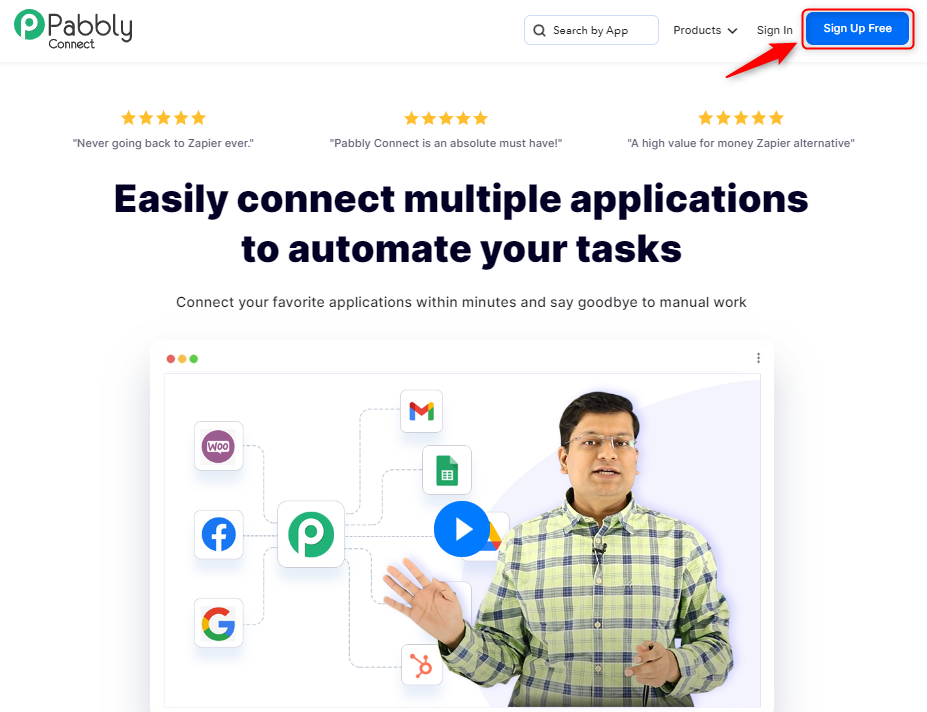
Click on the Pabbly Connect ‘Access Now’ button
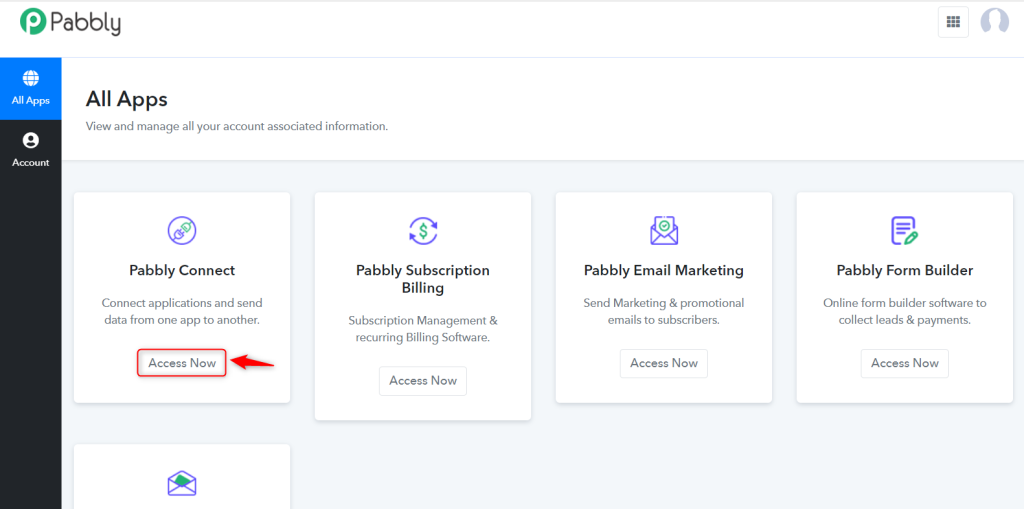
B. Create Workflow
To create a new workflow, click the ‘Create Workflow’ button.
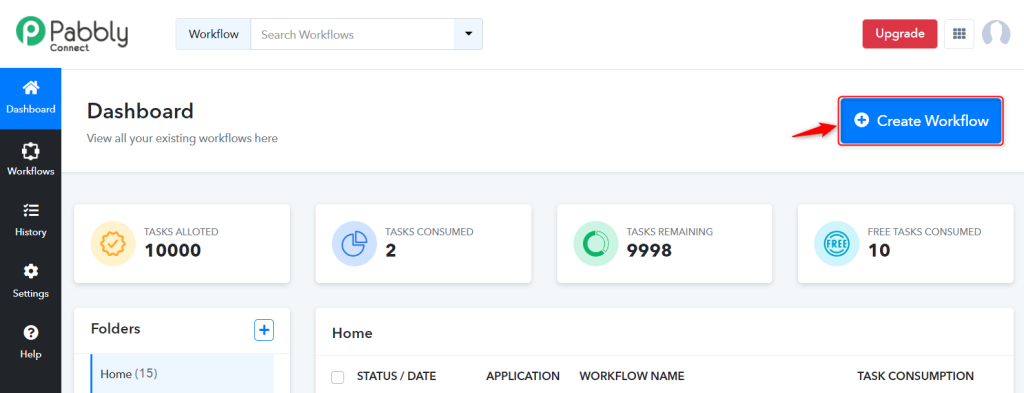
Name your workflow, and click on ‘Create’.

Step 2:- Establish a connection between Instamojo and Pabbly Connect
We will now look at the steps through which we can establish a link between Instamojo and Pabbly Connect. This will help us capture data for each successful payment.
A. Trigger App
Trigger allows us to choose the application that will receive the data for Pabbly Connect. In our case, it would be Instamojo.
Expand the Trigger Step, choose ‘Instamojo’ as your Action App, and select ‘New Sale’ as an Action Event.

B. Webhook URL
A new Webhook URL will get generated. You will use this Webhook URL to create a connection with your Instamojo account. Copy the Webhook URL.
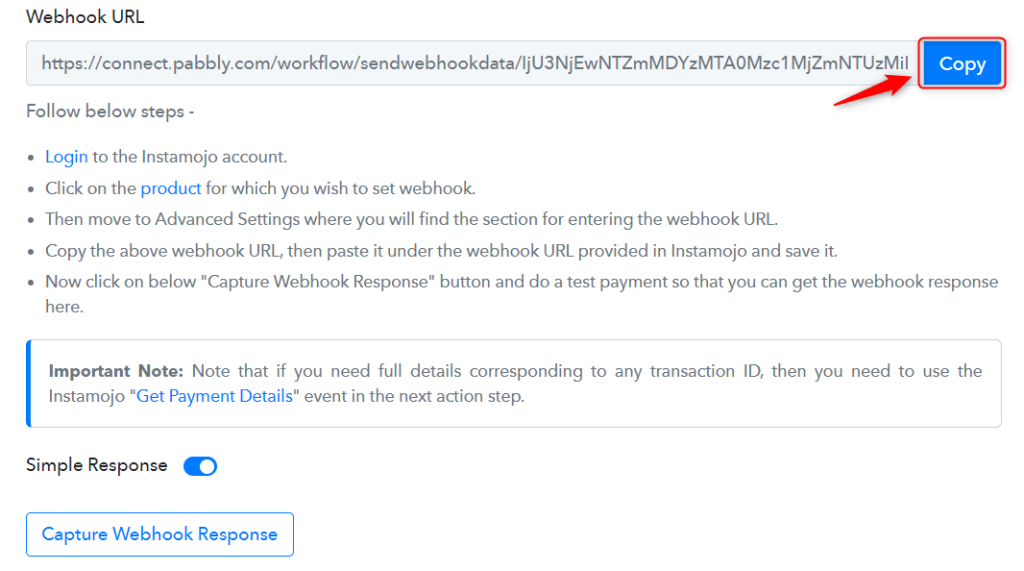
As soon as you Copy the Webhook URL, Pabbly Connect will start looking to capture data from Instamojo, as indicated by the rotating Waiting For Webhook Response button.

C. Connect Instamojo Account
To connect with your Instamojo account, go to your Instamojo dashboard and click on ‘Create New’.

Click on ‘Create Link’ under the Payment Link tile.
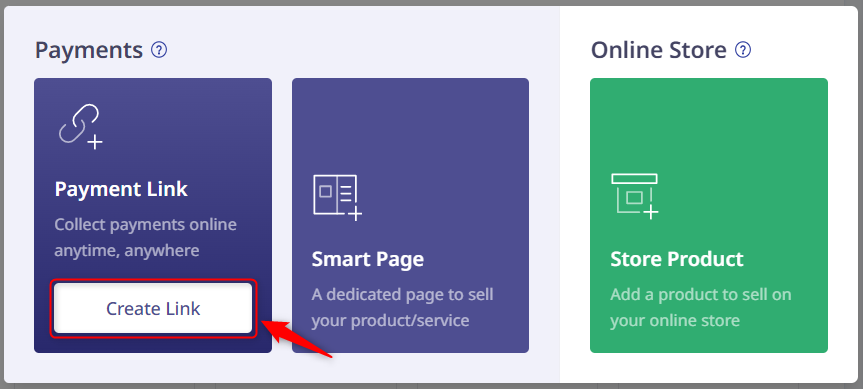
You will be prompted to Create a Payment Link. Select ‘Smart Link’, enter the Purpose of Payment, choose ‘Flat Pricing’ as your Smart Pricing Type, enter the Amount, and click on ‘Customize Link’.
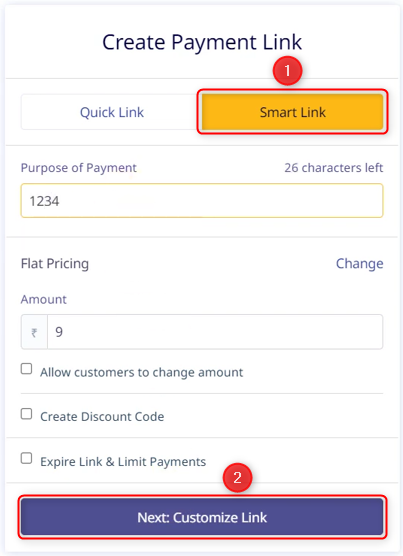
Under the Update Payment Link, select ‘Smart Action’ > ‘Add Webhook’, paste the Webhook URL we copied earlier, and click on ‘Done’. This will establish a link between Instamojo and Pabbly Connect.
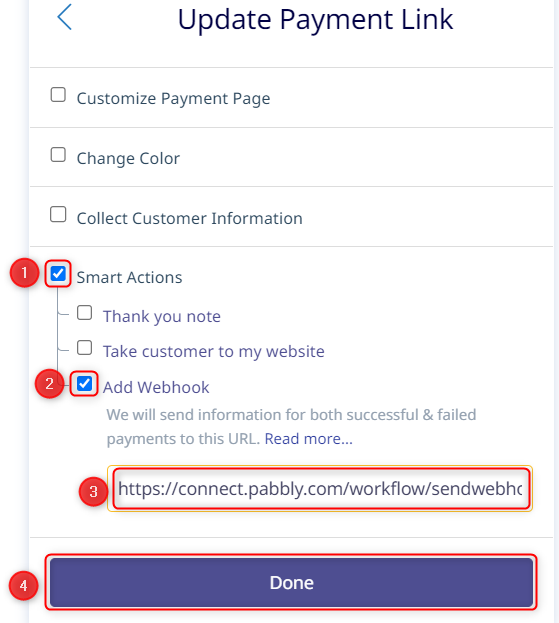
We have successfully generated a payment link and can use this link to collect payments. We have also established a connection between Instamojo and Pabbly Connect using the Webhook URL.
D. Test the Connection
You can now use this payment link to make a dummy transaction and check if your connection is successful or not.
Copy, paste, and open the payment link into an Incognito Tab.
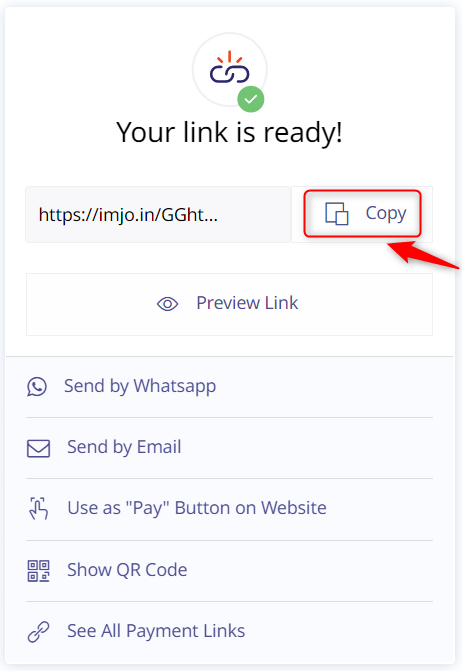
Fill up the payment form, click on ‘Next’ and make the payment.
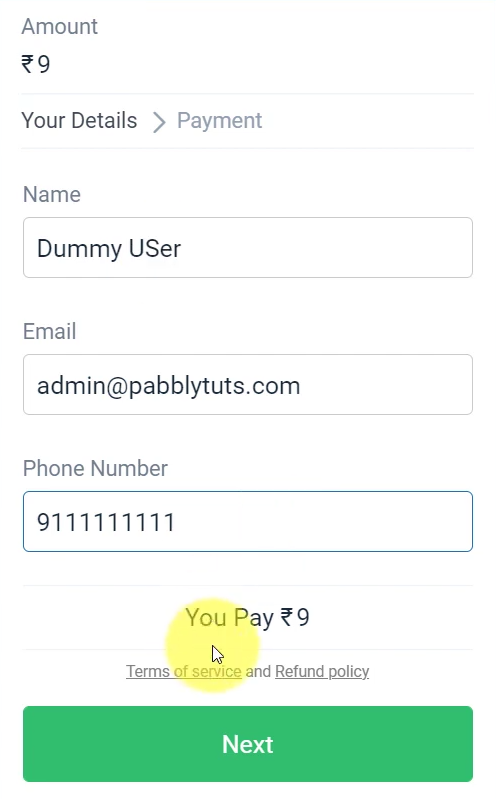
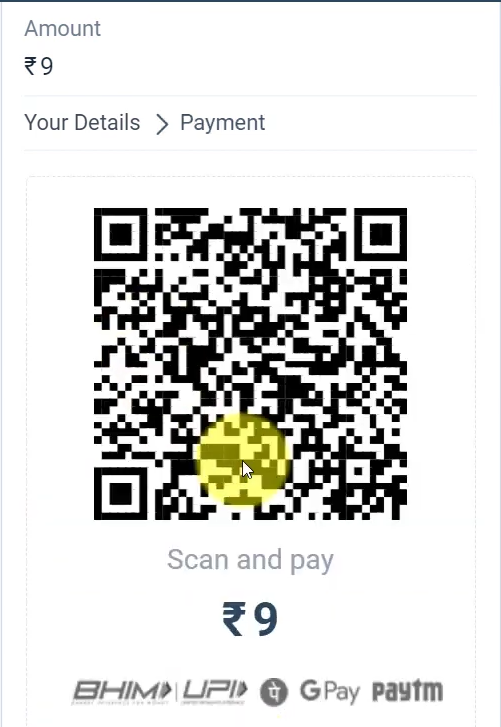
Switch back to Pabbly Connect, and expand Response Received. If the payment is successful, its status will be visible as such, along with the Payment ID.
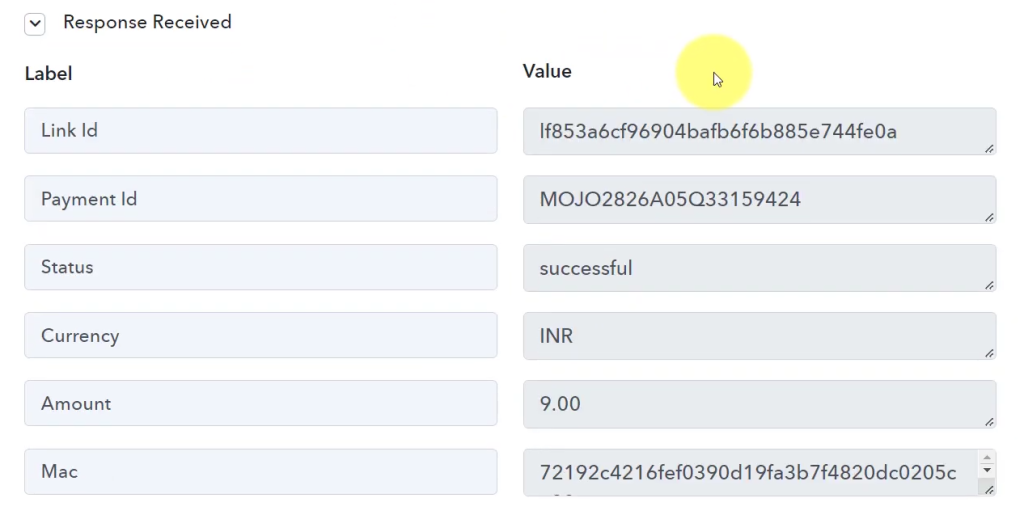
Step 3:- Setup Instamojo as the Action App to Get Full Details
Action allows us to choose the application that will get executed by the workflow trigger.
You will notice that the data we captured from Instamojo does not contain full details of the customer. To get these details, we have to set up Instamojo as our Action App.
A. Action App
Choose ‘Instamojo’ as the Action App, select ‘Get Payment Details’ as an Action Event, and click on ‘Connect’.
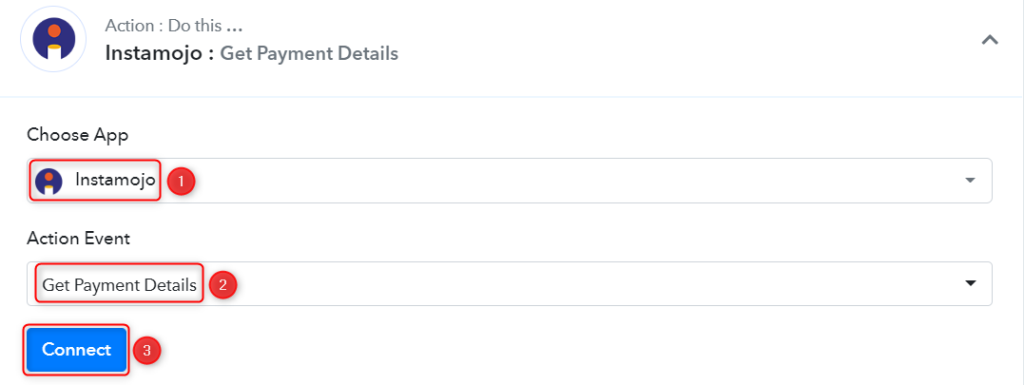
B. Connect Instamojo Account
To connect with your Instamojo account, select ‘Add New Connection’. You will be asked to enter your Private API Key and Private Auth Token. To find them, click on ‘API & Plugins’
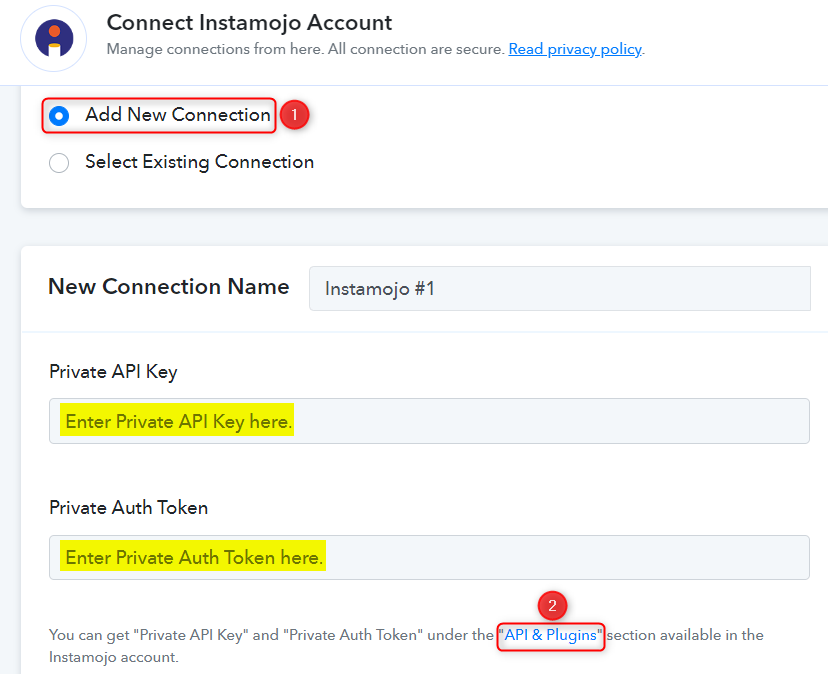
You will be redirected to your Instamojo account. Copy the Private API Key and Private Auth Token.
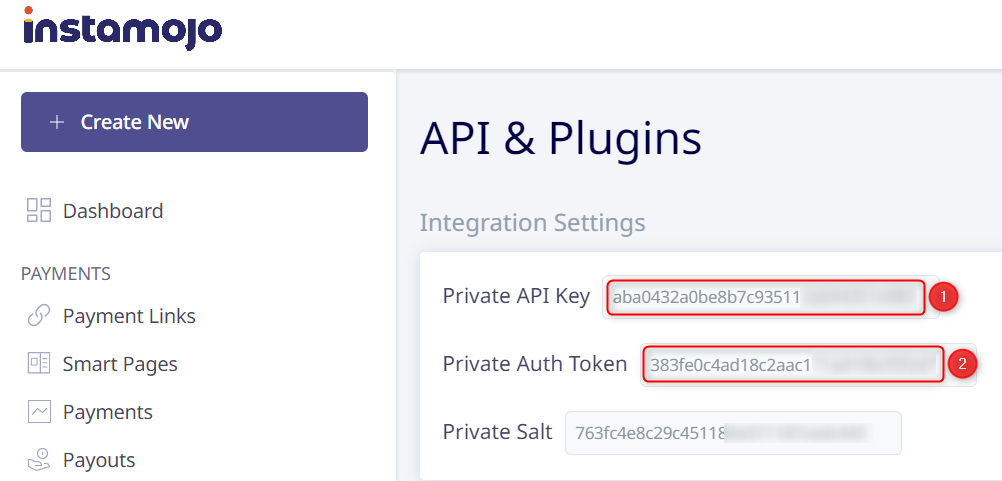
Paste both in their respective fields, and click on ‘Save’.
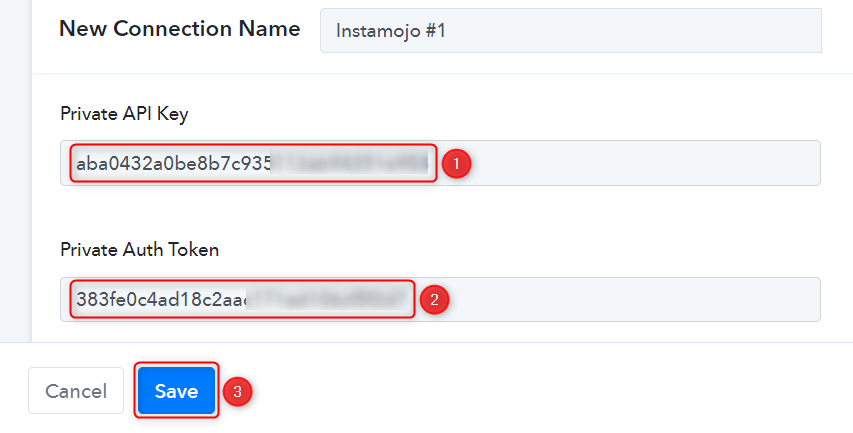
C. Map Payment ID
Since we have already captured the Payment ID in Trigger Step, all we need is to map it from above. Mapping ensures our data remains dynamic and changes as per the received responses.
Map the Payment ID from the step above, and click on ‘Save & Send Test Request’.
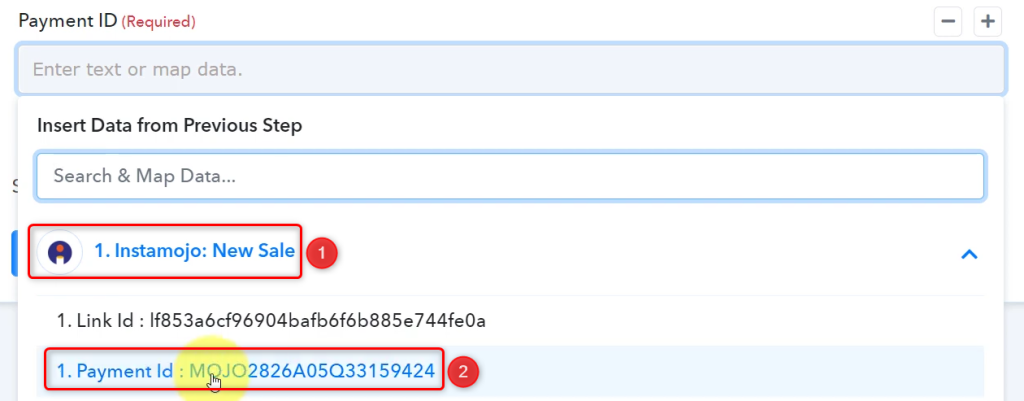

You will receive a response containing the payment details.

Step 4:- Setup Microsoft Excel as the Action App to Save Payment Details
Action allows us to choose the application that will get executed by the workflow trigger.
We essentially want to store the payment details in Microsoft Excel. Therefore, Microsoft Excel will be our Action App.
A. Action App
Choose ‘Microsoft Excel’ as your Action App, select ‘Add Row To Worksheet’ as an Action Event, and click on ‘Connect’.
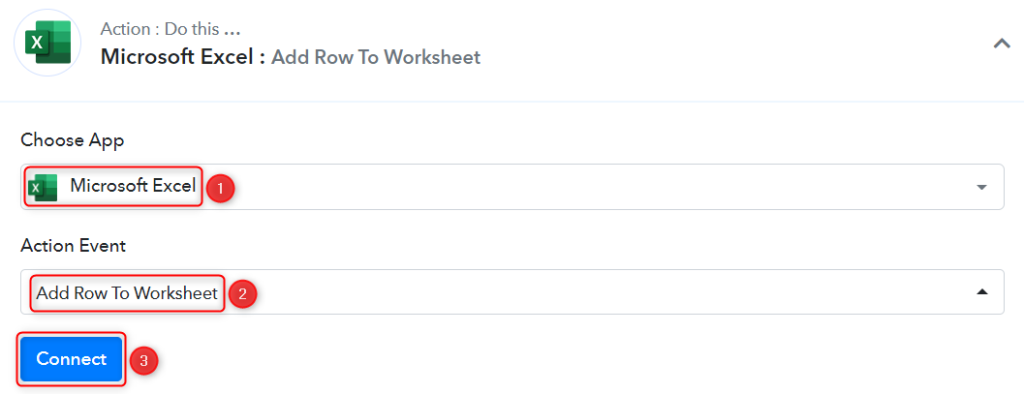
B. Connect Microsoft Excel Account
To connect with your Microsoft Excel account, select ‘Add New Connection’, and click on ‘Connect With Microsoft Excel’.

Select the Workbook and Worksheet you want to use for storing your data.

As soon as you select your sheet, the columns of this sheet will start reflecting as fields in your Action Step.

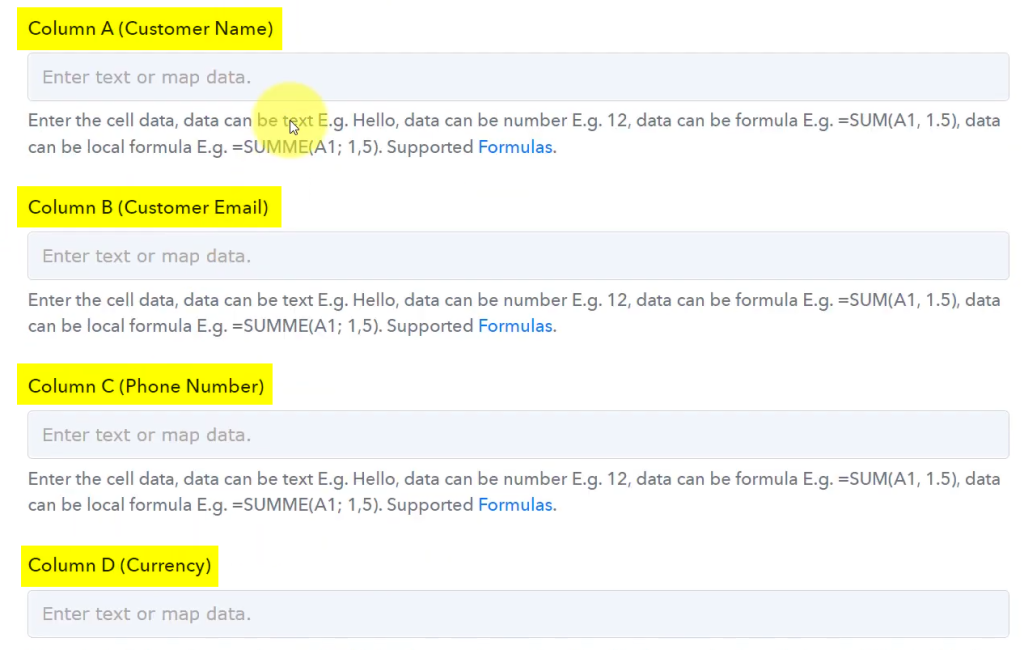
C. Map Necessary Fields
Now that you have connected your Microsoft Excel account, all you need is to map the necessary details from the steps above. Mapping ensures our data remains dynamic and changes as per the received responses.
Map Column A from the step above.
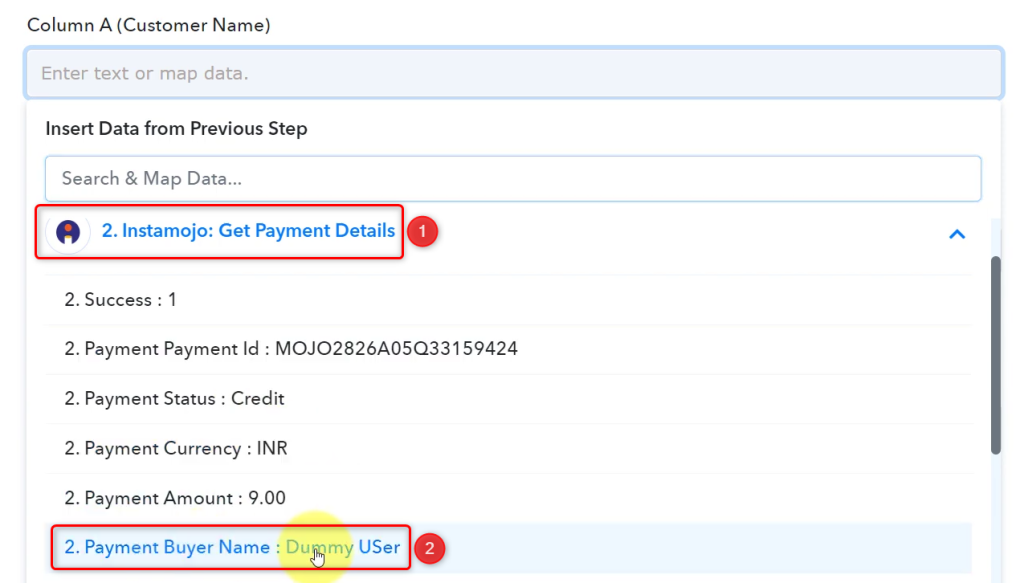
Similarly, map the other fields, and click on ‘Save & Send Test Request’.
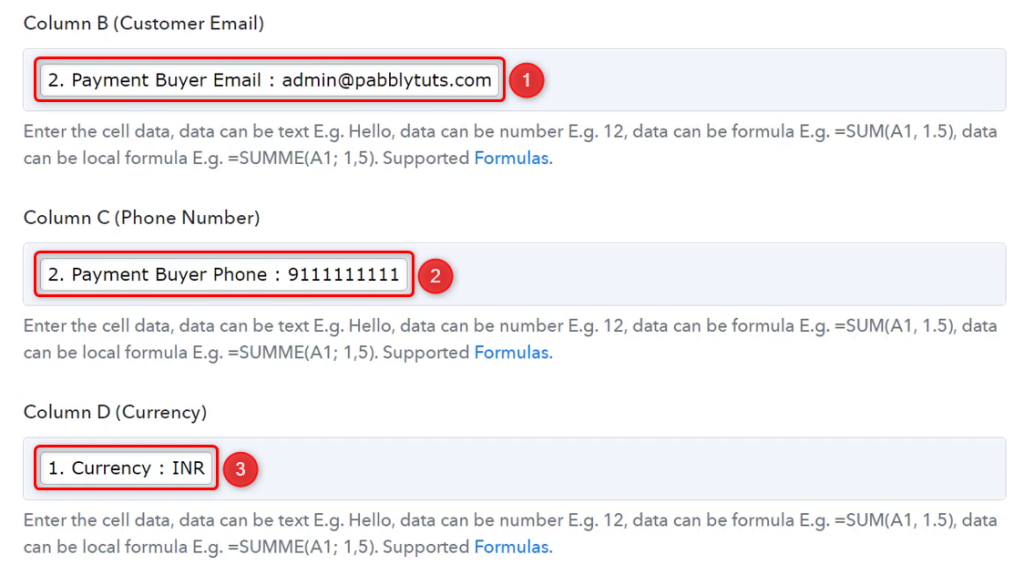
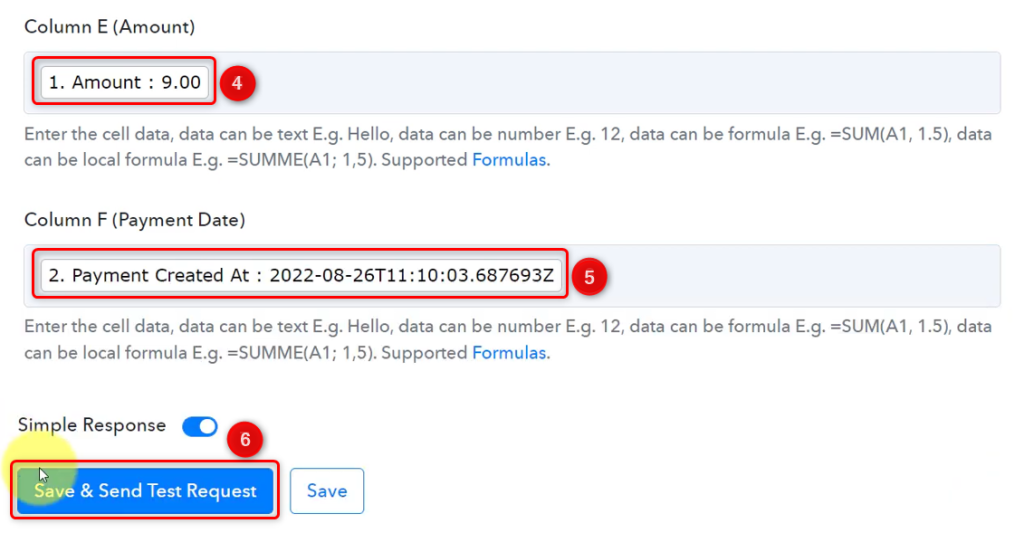
The moment you click on Save & Send Test Request, your payment details will get stored in Microsoft Excel.

Our automation is complete. We have successfully integrated Instamojo with MS Excel. The details of each new payment collected on Instamojo will now automatically be saved in MS Excel.
You can copy this entire workflow by clicking this link.
Sign Up for a free Pabbly Connect account, and start automating your business
Subscribe to our Youtube Channel for more such automation
For any other queries, visit our forum
